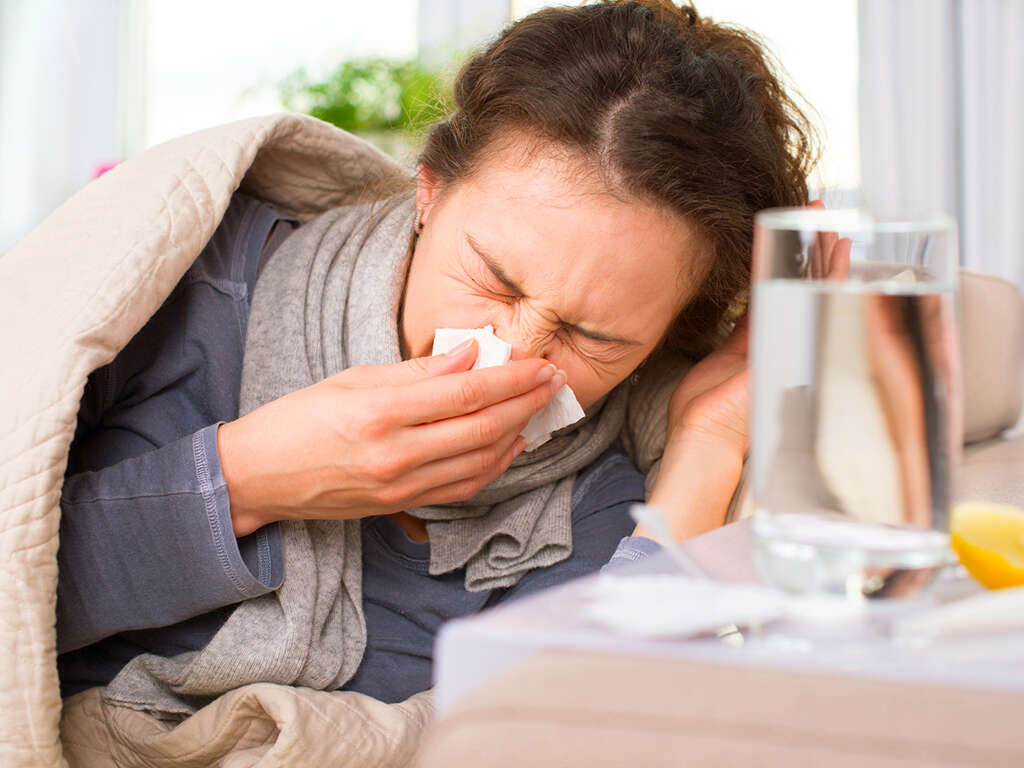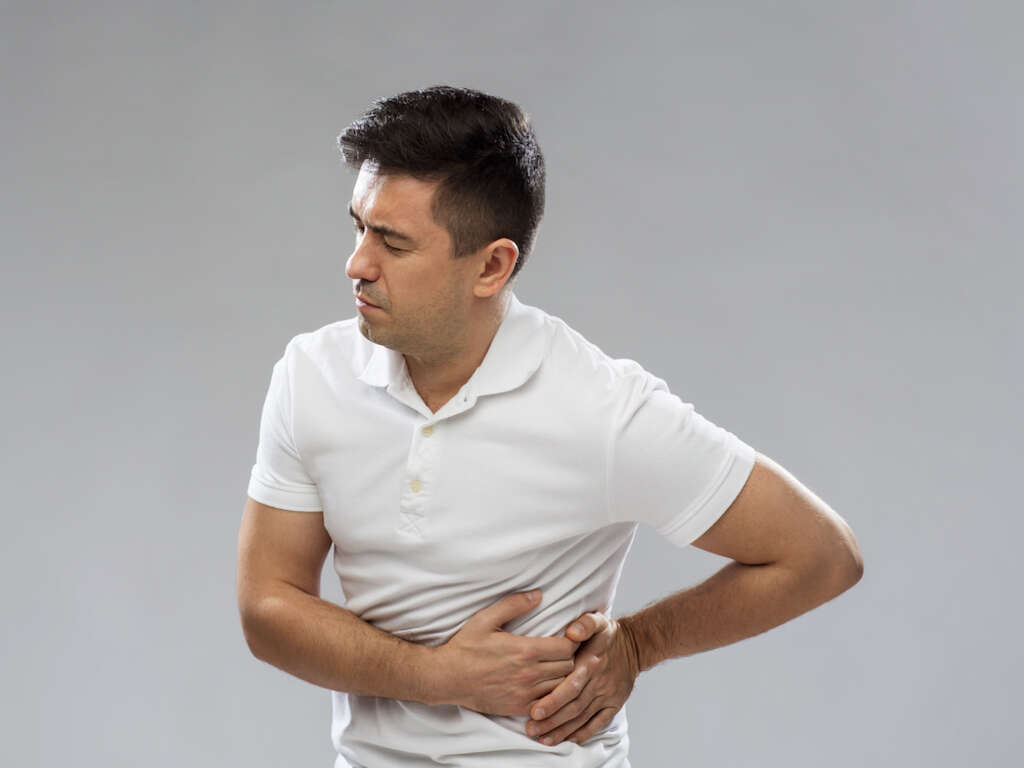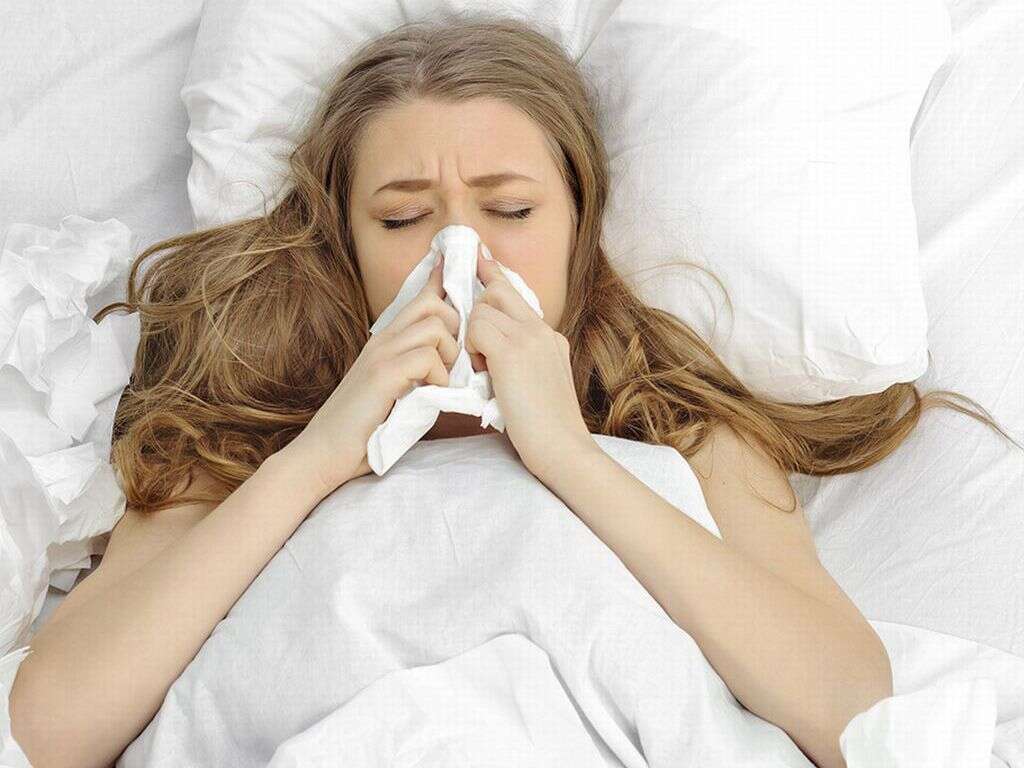10 Epstein Barr Virus Symptoms
Epstein Barr Virus, also abbreviated as EBV, is a contagious member of the herpes virus family. While it is estimated that more than 90 percent of the population have the EBV in their bodies, most people do not show any signs 1https://www.uptodate.com/contents/infectious-mononucleosis-in-adults-and-adolescents. Epstein Barr Virus is best known for causing infectious mononucleosis, also known as glandular fever. The condition occurs mainly in teenagers, college students and young adults.
Epstein Barr Virus is mainly transmitted through contact with saliva, cough and sneeze of a person who has the virus. EBV is readily transmitted through kissing; for which reason the infection is also referred to as the kissing disease. Epstein Barr Virus symptoms appear four to six weeks after original infection and in most cases remain for about two weeks. Some symptoms may stick around for months 2https://www.cdc.gov/epstein-barr/about-mono.html. But what are the Epstein Barr Virus symptoms? Keep reading to find out.
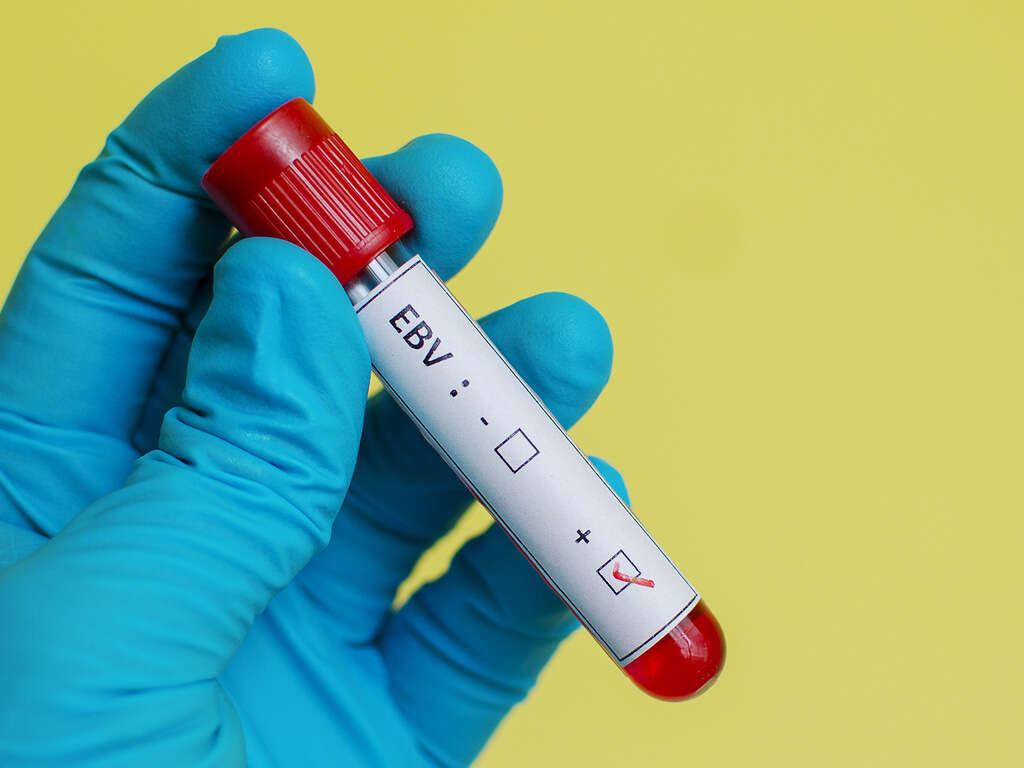
Symptom #1: Fever
Fever is one of the most common symptoms of Epstein Barr Virus. When the EBV gets into the body, it starts to multiply and spreads to different parts of the body. As the numbers of the virus grow, the body’s defense gets to work; it deploys white blood cells to fight the virus wherever it is found. This turns the body into some sort of battle ground.
The increasing viral load and the resistance by white blood cells cause the body temperature to rise and cause a fever. Additionally, the body’s temperature control mechanism may cause a rise in body temperature as another way of destroying infection. Fever may be accompanied by other symptoms like chills and sweating.
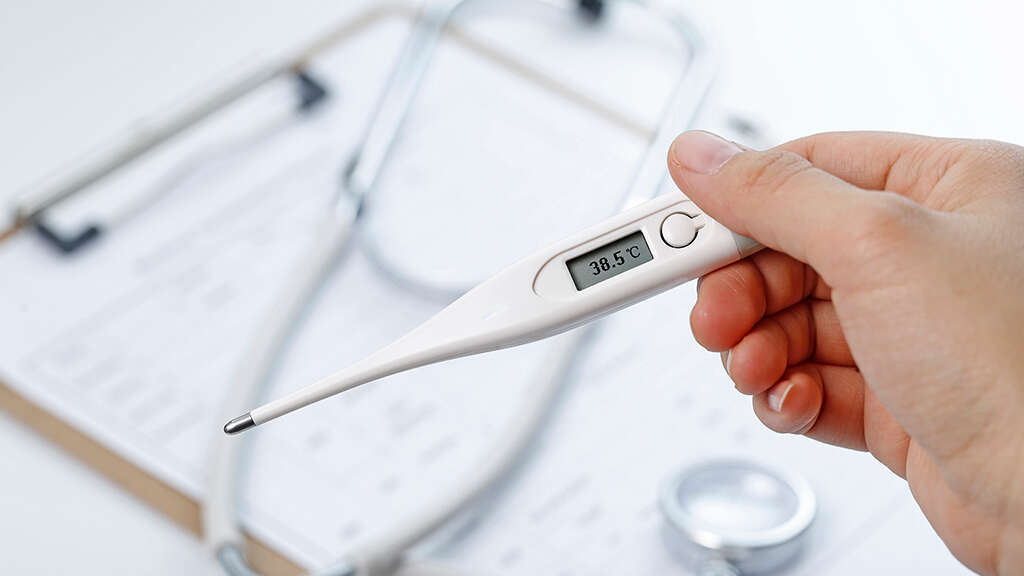
Symptom #2: Sore Throat
A sore throat is a common symptom of Epstein Barr Virus infection. Patients with mononucleosis may or may not have white patches in their tonsils. You can see these by examining the throat area. Use a mirror if you are doing self-examination.
Due to the similarities, the white patches may be confused for patches from strep throat. Whatever the case, consult your doctor for assessment and proper treatment.
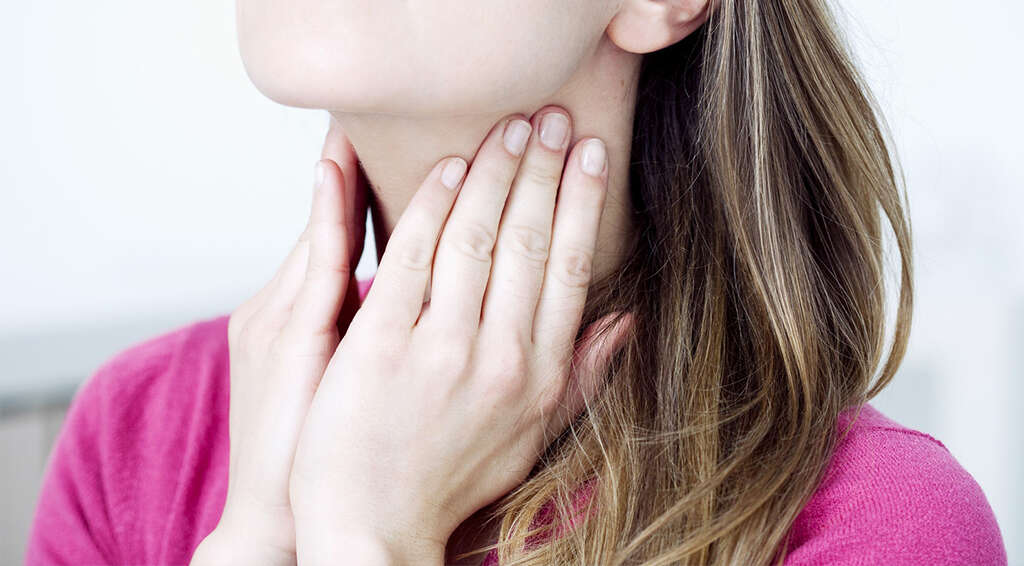
Symptom #3: Fatigue
Fatigue is usually the first Epstein Barr Virus symptom. However, you cannot rely on fatigue alone to decide that you have EBV. This is because of the lengthy incubation period. The fact of possible contact with infected body fluids may have faded from memory. The fatigue is also too mild at the beginning for you to take notice.
Besides, conditions like flu and the common cold also present with fatigue in addition to other symptoms. This is further compounded by the presence of other Epstein Barr Virus symptoms like fever and sore throat which also occur in the flu. For this reason, when fatigue first appears, you may assume that you are experiencing the common cold or flu.

Symptom #4: Skin Rash
A skin rash that develops after four to six weeks since possible exposure to EBV is among the first symptoms of Epstein Barr Virus infection. Exposure to EBV can occur from kissing or contact with body fluids like saliva, semen and blood of an infected person. However, it may be difficult to determine whether the rash is a result Epstein Barr Virus or another infection. This is because other conditions including infections with other viruses and bacteria can present with a similar rash.
An EBV rash usually appears as flat patches with small red bumps. It starts on the upper arms and the trunk before spreading to the forearms and the face. Little blisters may also form. The rash usually lasts for no more than one week.

Symptom #5: Sore Muscles
Myalgia, also known as muscle aches are not a common symptom associated with EBV infections.
If they appear they are usually mild and show up late in the progression of the disease. If you are suffering from this symptom, you should seek medical attention for proper diagnosis and treatment.
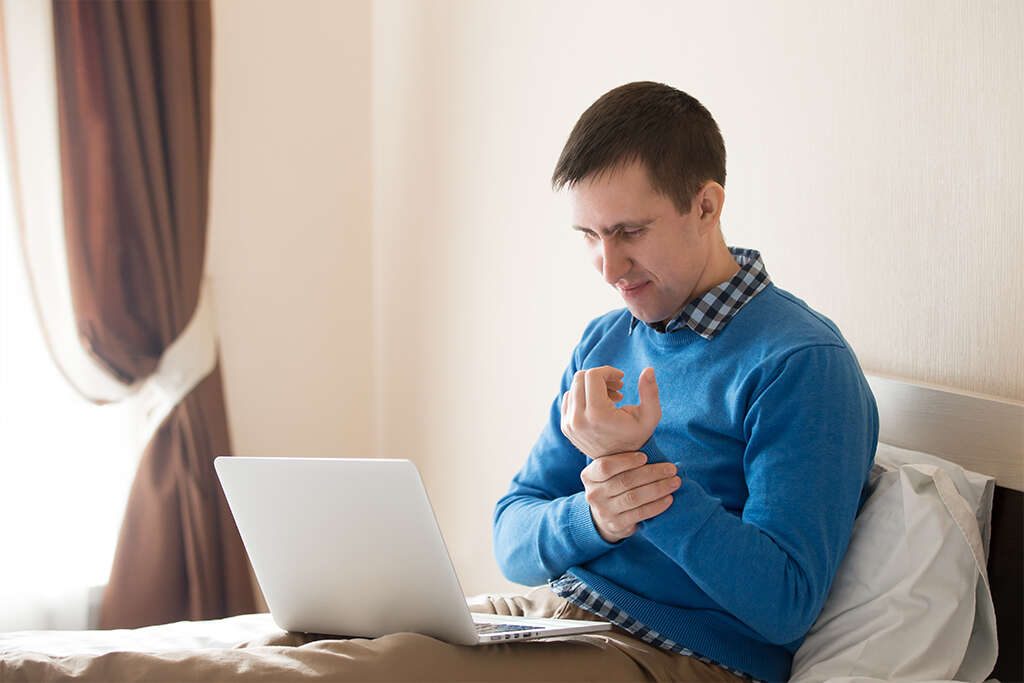
Symptom #6: Poor Appetite
Poor appetite is yet another symptom of Epstein Barr Virus. As with many illnesses, when you have EBV, your desire to eat decreases. Poor appetite is one of the reasons why you may also get other symptoms like low energy and tiredness.
It is necessary that you do your best to eat several times each day. You should also ensure that you get a balanced diet to provide your body with vitamins, minerals and the nutrients necessary for fighting the infection. Also remember that when you are ill, your body requires more energy for both maintenance and recovery from illness.

Symptom #7: Malaise
Malaise may also be a symptom of Epstein Barr Virus. Malaise is a state in which you experience general discomfort bordering on pain as well as low energy. Malaise may be accompanied by several other signs like poor appetite, sore throat and fever. A patient with malaise needs to get lots of rest.
It is also necessary that the patient take water and other fluids to ensure that he gets adequate hydration. It may also be necessary to consult a doctor for examination and diagnosis. Other conditions may present with general body malaise in addition to other symptoms.

Symptom #8: Swollen Lymph Nodes
Presence of swollen lymph nodes may be a symptom of Epstein Barr Virus. However, swollen lymph nodes may also be the result of other problems such as strep infection. You may therefore need to visit a healthcare provider for further assessment. Lymph nodes are part of the lymph system which helps clear impurities and toxins from the bloodstream.
The lymph system itself exists as a network of channels and nodes spread throughout the body. These channels flush out toxins and impurities including infection-causing viruses and bacteria which have been isolated by the infection-fighting white blood cells. You can feel the swollen lymph nodes in the neck, armpits and the groin.
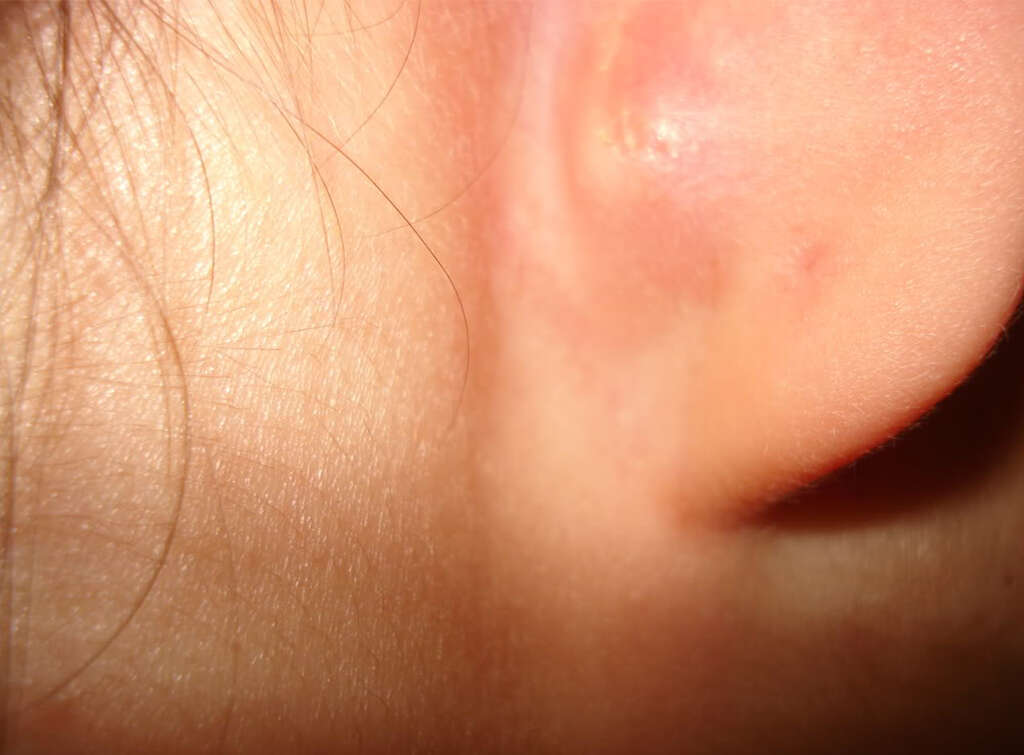
Symptom #9: Tiredness
Chronic tiredness may be a symptom of Epstein Barr Virus. Infection with the EBV leads to poor appetite at a time when the body requires high amounts of energy to fight infection in addition to maintenance of the normal body functions. This can lead to a chronic lack of energy, increased tiredness and weakness.
In this state, you may find it difficult to carry out otherwise normal physical activities. Note, however, that you cannot depend on tiredness to conclude that you have EBV. Other health conditions may also present with tiredness. For this reason, you will need to consult a healthcare professional for examination and diagnosis.

Symptom #10: Abdominal Pain
Abdominal pain can appear as a late manifestation of the disease. This is usually due to liver and/or spleen enlargement (hepatomegaly and splenomegaly respectively).
Abdominal pain in patients suffering from mononucleosis is usually mild and non-localized. Rest is recommended to avoid further complications like a ruptured spleen.






